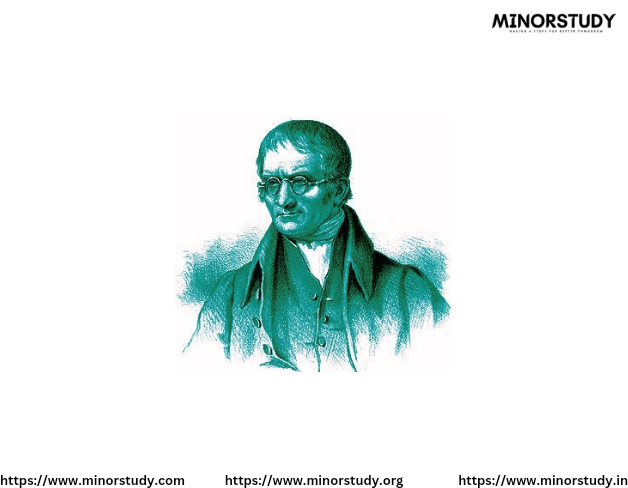Ernest Rutherford
- Minorstudy Web blogs
- Dec 8, 2024
- 3 min read

Ernest Rutherford: About, History, and Contributions
Full Name: Ernest Rutherford, 1st Baron Rutherford of NelsonBorn: August 30, 1871, Brightwater, New ZealandDied: October 19, 1937, Cambridge, EnglandNationality: New Zealand-BritishKnown As: "Father of Nuclear Physics"
Historical Background
Ernest Rutherford was a physicist whose groundbreaking work on radioactivity and atomic structure earned him the title "Father of Nuclear Physics." He discovered the concept of the atomic nucleus, significantly altering the understanding of atomic structure. His discoveries laid the foundation for nuclear physics and modern atomic theory.
Rutherford began his career in New Zealand but later moved to England, where he conducted much of his influential research. He received numerous honors for his scientific achievements, including the Nobel Prize in Chemistry in 1908.
Key Events in Ernest Rutherford’s Life
1871: Born in New Zealand as the fourth of twelve children.
1895: Earned a scholarship to study at the University of Cambridge under J.J. Thomson.
1898: Discovered alpha and beta radiation while working at McGill University in Canada.
1902: Developed the theory of radioactive decay and transmutation of elements.
1908: Awarded the Nobel Prize in Chemistry for his work on radioactivity.
1911: Proposed the nuclear model of the atom after conducting the famous gold foil experiment.
1919: Achieved the first artificial nuclear reaction by transmuting nitrogen into oxygen.
1931: Elevated to the British peerage as Baron Rutherford of Nelson.
1937: Passed away in Cambridge, England.
Important Discoveries and Contributions
Discovery of Alpha and Beta Radiation (1898)
Rutherford classified radiation into two types: alpha particles (positively charged) and beta particles (negatively charged). This distinction was critical in understanding radioactive decay.
Theory of Radioactive Decay (1902)
Rutherford and Frederick Soddy demonstrated that radioactive elements decay into other elements over time. This work formed the basis of the concept of half-life and radiometric dating.
Gold Foil Experiment (1911)
Rutherford, along with Hans Geiger and Ernest Marsden, conducted the gold foil experiment, which revealed that the atom has a dense, positively charged nucleus.
This discovery overturned J.J. Thomson's Plum Pudding Model and led to Rutherford's nuclear model of the atom.
Artificial Nuclear Reaction (1919)
Rutherford was the first to achieve the artificial transmutation of an element, converting nitrogen into oxygen using alpha particles. This experiment marked the beginning of nuclear physics.
Discovery of the Proton (1920)
Rutherford identified the proton as a fundamental particle within the nucleus, which further advanced atomic theory.
Mentorship of Future Scientists
Rutherford mentored several notable physicists, including Niels Bohr, who refined the atomic model, and James Chadwick, who discovered the neutron.
Significance and Impact on Society
Atomic Structure: Rutherford’s work provided the foundation for modern atomic models, helping scientists understand the fundamental building blocks of matter.
Nuclear Physics: His experiments and theories paved the way for nuclear energy, medicine (radiotherapy), and weapons development.
Radiometric Dating: His research into radioactive decay enabled scientists to accurately determine the age of Earth and ancient artifacts.
Scientific Inspiration: Rutherford’s discoveries inspired future generations of physicists, leading to breakthroughs in quantum mechanics and particle physics.
Why Is Ernest Rutherford Important?
Revolutionized Atomic Theory: By introducing the nuclear model of the atom, Rutherford changed how scientists perceive atomic structure.
First Artificial Nuclear Reaction: His transmutation experiments were the first step toward controlled nuclear reactions, which later became the basis for nuclear power and weapons.
Foundation of Nuclear Science: Rutherford’s discoveries remain fundamental to fields like nuclear physics, chemistry, and radiology.
Important Points and Facts
Nobel Prize in Chemistry (1908): Despite being a physicist, Rutherford received the Nobel Prize in Chemistry for his investigations into the disintegration of elements and radioactive substances.
Rutherford Scattering: His gold foil experiment is a classic demonstration of scattering phenomena, still taught in physics classes worldwide.
The Rutherford Model: While later replaced by Bohr’s model and quantum mechanics, Rutherford's model was the first to incorporate a central nucleus.
Quotes by Ernest Rutherford
"All science is either physics or stamp collecting."
"An alleged scientific discovery has no merit unless it can be explained to a barmaid."
"If your experiment needs statistics, you ought to have done a better experiment."
Legacy and Observance
Rutherford is commemorated in scientific institutions and events worldwide. His work is honored during Physics Week and on anniversaries of his discoveries.
His name is immortalized in the Rutherford Medal, awarded for achievements in nuclear physics.
Conclusion
Ernest Rutherford’s revolutionary discoveries reshaped science, influencing both theoretical and practical applications. From the nuclear model of the atom to the discovery of protons and artificial nuclear reactions, his work laid the foundation for modern physics and chemistry. As a mentor, innovator, and scientist, Rutherford remains one of the most influential figures in scientific history.











Comments